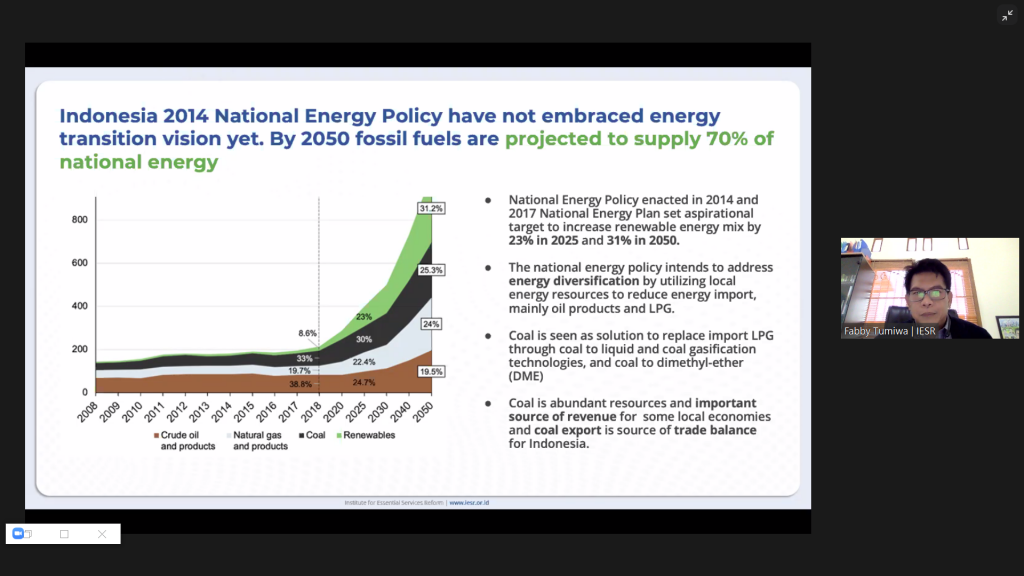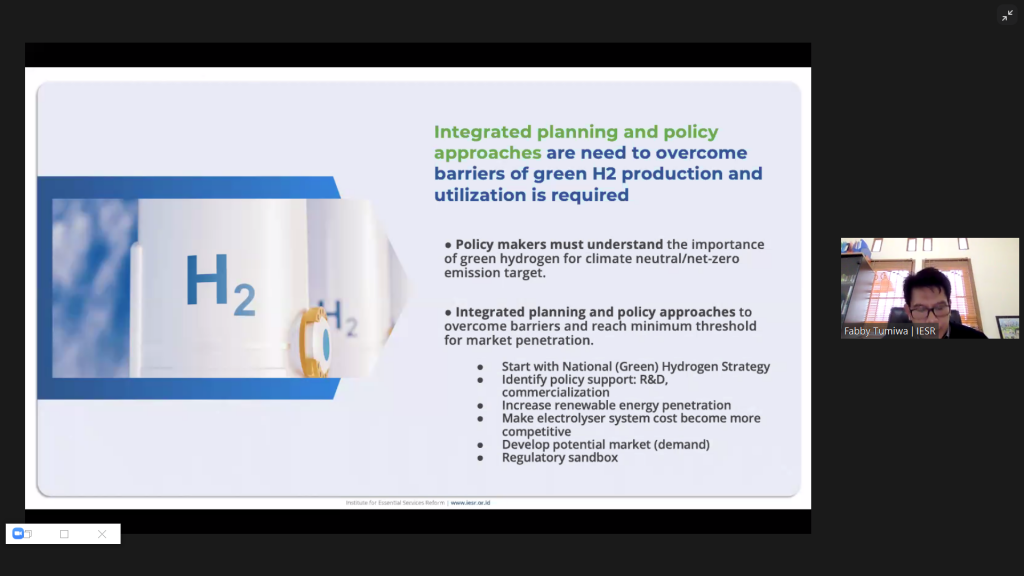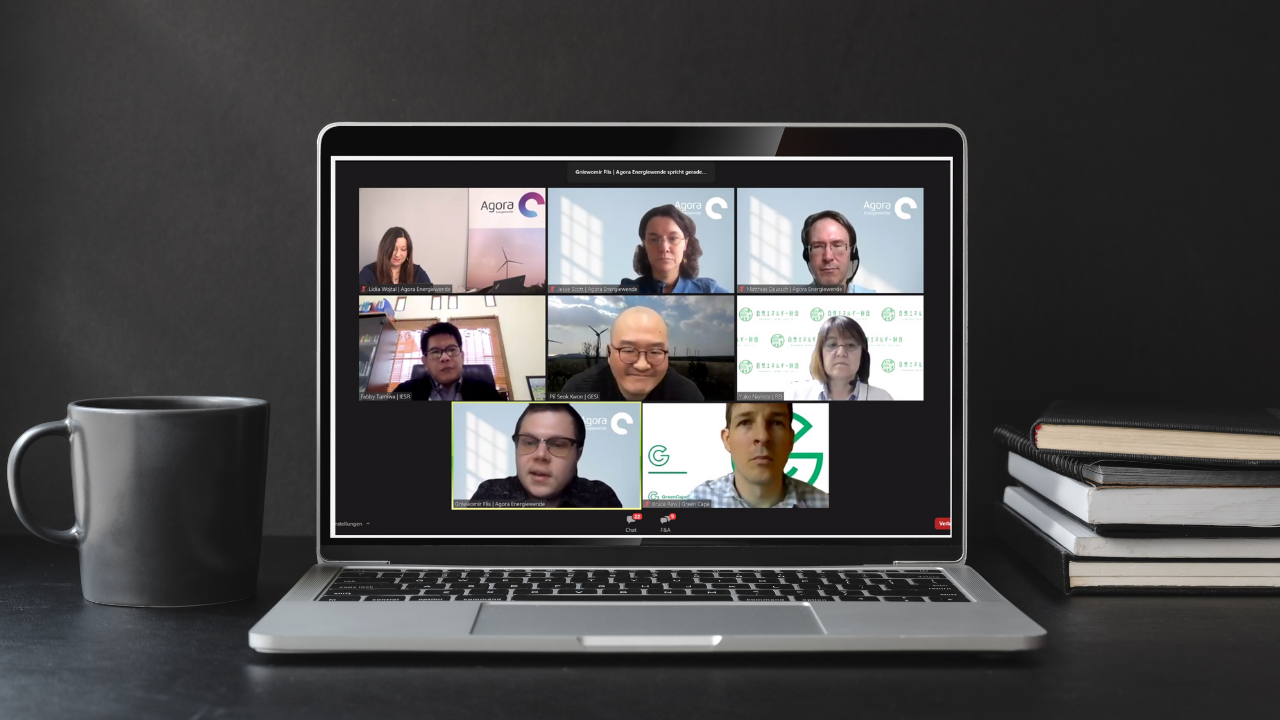Several countries and large companies today have committed to becoming carbon neutral (net-zero emission) by 2050. The declining cost of solar and wind, the two sectors predicted to become the backbone for decarbonization, opens the opportunity for the realization of this commitment. Moreover, the electrification of the transportation system and hydrogen development, also become important tools to achieve carbon neutrality.
On the first day of the Berlin Energy Transition Dialogue 2021, which was held virtual on (18/3), several international think-tanks gave their views and opinions on decarbonization efforts towards net-zero emissions 2050 and specifically on hydrogen development strategies. Compared to other renewable energy sources such as solar and wind, hydrogen is more recently developed. Representing Indonesia in the forum, the Executive Director of the Institute for Essential Services Reform (IESR ), Fabby Tumiwa, explained the status of Indonesia’s decarbonization development and the role of hydrogen in it.
“Indonesia still does not have a long-term strategy towards net-zero by 2050 yet. Even in 2050, it is projected that fossil energy will still dominate the national energy mix by 70%. Indonesia’s current energy fulfilment strategy has not yet reflected an energy transition approach,” said Fabby.

Fabby also added that hydrogen development in Indonesia is still very far away because energy policymakers are still not familiar with this new technology.
Challenges in the widespread use of hydrogen in Indonesia, namely in developing significant storage or battery technology. IESR has conducted a study, and it showed that in an optimal decarbonization scenario where hydrogen will receive a larger portion of Indonesia’s energy system, the demand for power storage will increase significantly, which means that the supporting infrastructure must also be prepared. A full version of this study will be launched by IESR soon.
Facing this energy transition era, the Indonesian government as the policymaker must understand the role of green hydrogen in the decarbonization process. Furthermore, an integrated strategy must be created and implemented for the development of hydrogen from both the research and policy development point of view.
Globally, hydrogen is targeted to enter several sectors, i.e: industry, electricity, transportation, buildings, and exports. The stability of hydrogen power during the storage period can be a solution for generating power in remote areas.

Also attending the discussion were Pil Seok Kwon, director of the Green Energy Strategy Institute of South Korea, Yuko Nishida, Senior Manager of Renewable Energy Institute Japan, and Bruce Raw Chief Strategy Officer of Green Cape, South Africa. Each of them conveyed the status of hydrogen development in their country and submitted input for future development. All parties agreed that a specific international strategy is needed for hydrogen development globally.

